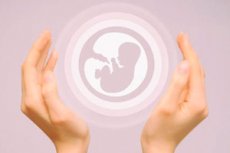New publications
Warm weather is the best time to conceive
Last reviewed: 29.06.2025

All iLive content is medically reviewed or fact checked to ensure as much factual accuracy as possible.
We have strict sourcing guidelines and only link to reputable media sites, academic research institutions and, whenever possible, medically peer reviewed studies. Note that the numbers in parentheses ([1], [2], etc.) are clickable links to these studies.
If you feel that any of our content is inaccurate, out-of-date, or otherwise questionable, please select it and press Ctrl + Enter.

During the warm and sunny seasons, the amount of hormones in a woman's body increases to help her conceive a child.
The likelihood of pregnancy readiness in women is assessed by hormonal factors. Immature eggs in the ovaries gradually mature and become ready for fertilization. This periodic process is nothing but the well-known monthly cycle, with repeated hormonal changes.
Antimüllerian hormone is an accurate marker of ovarian reserve. It is produced by ovarian follicles and demonstrates the reproductive capacity of the female body. In addition, this hormone "selects" among immature oocytes the necessary one, capable of passing all stages of maturation.
Adequate function of the reproductive apparatus is associated with regular maturation of a single ovum, which is controlled precisely by antimüllerian hormone. Therefore, it is a kind of indicator of the quality of work ovaries. Its values can be used to predict when a woman will enter menopause.
Antimüllerian hormone does not exist alone. Its work is closely connected with other hormonal mechanisms, as well as with nutrition, metabolic processes, etc. For example, known factors of hormonal balance are sufficient amounts of vitamin D, produced under the influence of ultraviolet rays.
Representatives of Tel Aviv University and the Haim Sheba Medical Center have studied the relationship between the amount of anti-müllerian hormone and sunlight. Specialists studied the results of more than 2 thousand women in the age range of 19-40 years. All these women periodically took tests to assess their chances of pregnancy.
Scientists noted that the hormonal index was higher in spring and summer, when the sun is more active. However, there is a nuance: if there was too much sunlight, the antimüllerian hormone index decreased.
It is noteworthy, but such a phenomenon was characteristic only for women 30-40 years old. No such correlation was found in 20-25-year-olds. Probably, at an older age, the hormonal apparatus requires a more active influence of external factors that could facilitate its work.
By the way, the scientists studied only the hormone indicator in certain situations. Such factors as the number of pregnancies and children born were not taken into account. Nevertheless, the results of the study give a broader picture of the function of the reproductive system and the influence of additional factors on its work. It would also be interesting to trace similar processes in women living in regions of constant sunlight deficiency.
Details of the study are published at sciencedirect
